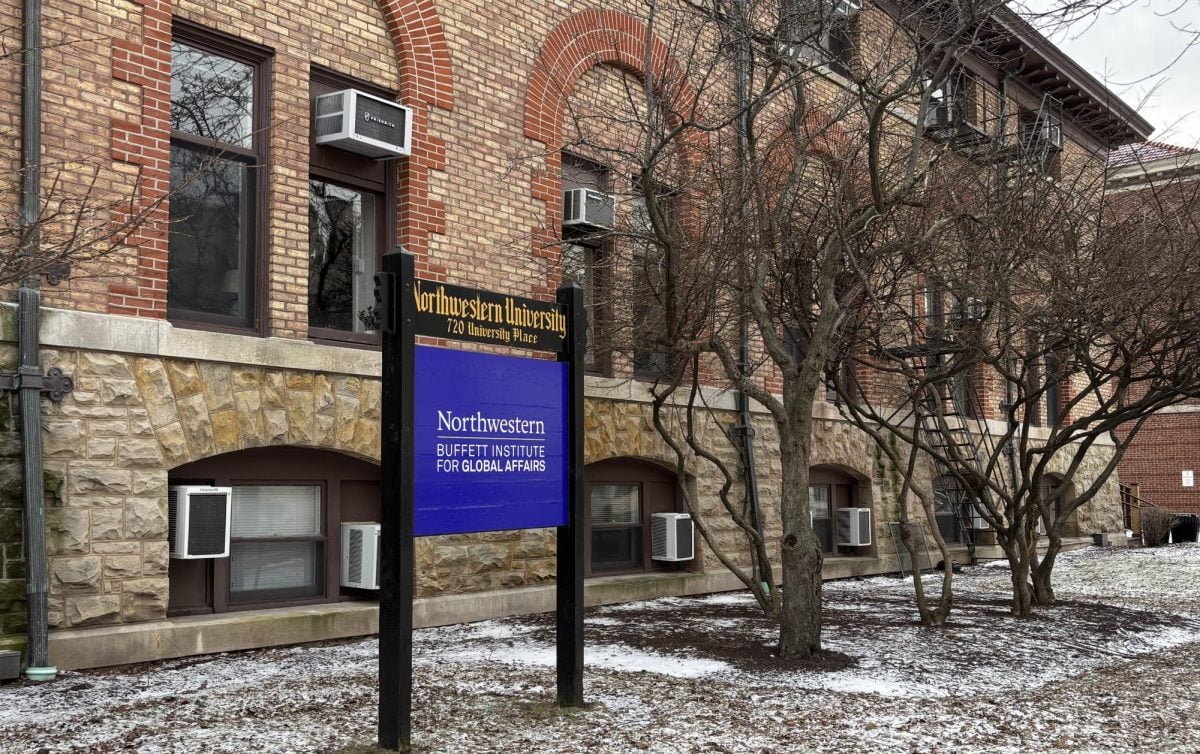Twelve Northwestern students attended the annual Conference of the Parties to the UN Framework Convention on Climate Change, COP29, to conduct research. The delegation presented their findings at a poster session held by the Buffett Institute for Global Affairs on Friday.
COP29 was held in Baku, Azerbaijan in November, and students attended in-person or virtually for 12 days. They focused on a variety of topics, from Indigenous participation in climate governance to how water was incorporated into the conference discussions.
Political science graduate student Danielle Ortiz researched horizontal organizing, which is a form of advocacy in which authority is decentralized. They said the interdisciplinary nature of the delegation made the presentation more difficult. While she can use common political science jargon at workshops specific to the field, the variety of attendee backgrounds at the poster session made it hard to use that type of language.
“It’s difficult terrain to navigate, especially in such a constrained time period of a five-minute presentation,” Ortiz said.
Former Weinberg Prof. Kimberly Marion Suiseeya said the interdisciplinary nature of the class is challenging but has also helped her students learn from each other.
Marion Suiseeya, now an environmental justice professor at Duke University, added that she hoped the style of education enriched students’ experiences and future goals.
“I hope the students that went found something in the experience that impacts what they want to do in their lives moving forward, that it was really a transformative experience,” Marion Suiseeya said.
The delegation gathered their data through ethnographic research, a method based on interviews and observations designed to represent an event from a participant’s point of view. Despite having studied political science for years, Ortiz said the experience at COP29 reinforced how “incredibly intricate” international politics are.
Students said they also walked away with a different perspective on the purpose of these conferences. At the event, Communication senior Katie Cummins said COP29 is more about creating a space for climate discussions rather than deciding on international policies.
“These conversations are super important,” Cummins said in answer to an audience question. “How we talk about them is how policy is created, and eventually, down the line, how governments implement these international goals that we all have.”
The scope of the climate crisis and slow international progress makes climate a subject that is easy to feel pessimistic about, Ortiz said. She added that she wanted the audience to walk away with more awareness on how to navigate the science and politics of climate change.
The class and poster session gave her hope, Ortiz said.
“Finding those moments and those spaces where you see progress is really important,” Ortiz said. “I think a lot of our team highlights those moments.”
Students took the Research in Global Climate Change: Science, Rights & Politics at Climate COPs course to prepare for the COP29 conference.
Marion Suiseeya said watching the research presentation was “bittersweet” because it was her last group of students at Northwestern.
“I am so proud of those students,” Marion Suiseeya said. “For me, Friday was a crystallization of the relationships that we formed as a research team.”
Email: lexinewsom2028@u.northwestern.edu
Related Stories:
— Anne-Marie Slaughter discusses international law at Buffett Institute
— Northwestern civil and environmental engineers work to future-proof U.S. embassies







